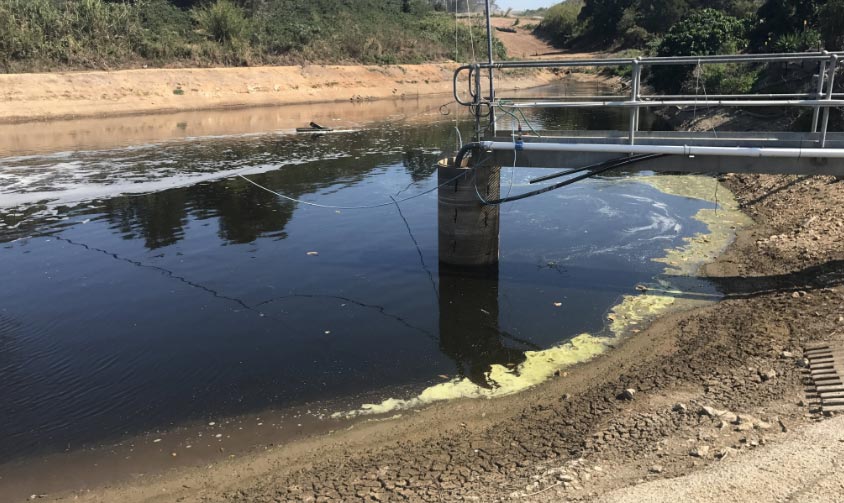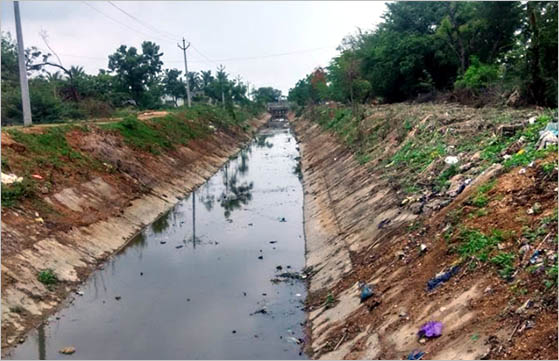Recognizing the Comprehensive Refine of Liquid Garbage Disposal: Ideal Practices and Environmental Influence Considerations
The administration of fluid waste disposal is a diverse problem that calls for a detailed understanding of different ideal practices and their associated environmental effects. From the types of liquid waste produced to the methods used for collection, treatment, and last disposal, each action plays a critical function in securing communities and public wellness.
Kinds of Fluid Waste
Understanding the different sorts of liquid waste is necessary for efficient administration and disposal techniques. Liquid waste can be broadly classified into a number of types, each needing one-of-a-kind handling and therapy approaches.
Industrial liquid waste typically contains harmful materials, including hefty metals, solvents, and chemicals, created throughout producing procedures. These wastes necessitate stringent regulatory conformity to shield human wellness and the environment. Residential liquid waste primarily refers to wastewater generated from houses, consisting of sewer and greywater, which, although much less harmful, can still posture considerable risks if incorrectly taken care of.
Agricultural liquid waste, consisting of runoff from ranches, often contains fertilizers and chemicals that can result in environmental degradation otherwise treated properly. Clinical fluid waste, generated from healthcare facilities, includes polluted liquids such as physical fluids and chemicals, needing specialized disposal approaches to avoid infection and ecological contamination.
Finally, oil and oil waste, usually generated by restaurants and automotive industries, can cause extreme obstructions in drain systems otherwise handled appropriately. Recognizing these groups helps with targeted methods for therapy, compliance with policies, and efficient disposal techniques, eventually advertising environmental sustainability and public wellness safety and security.

Collection Approaches
Effective collection methods are crucial for the appropriate administration of liquid waste, guaranteeing that it is gathered securely and efficiently before therapy or disposal. Different strategies are employed depending upon the type of liquid waste produced, the volume, and the particular features of the waste.
One common technique is using devoted collection storage tanks or sumps, which are made to capture liquid waste at the source. These systems usually include pumps that promote the transfer of waste to larger storage containers or treatment facilities. Additionally, mobile collection systems outfitted with vacuum innovation are used in circumstances where waste is generated periodically or in hard-to-reach locations.
For industrial settings, closed-loop systems can properly minimize leakages and spills, enabling the recovery and reuse of liquid waste. It is also necessary to educate workers on appropriate collection methods to reduce dangers related to dangerous substances.
Additionally, carrying out routine upkeep schedules for collection tools ensures ideal efficiency and safety and security. The combination of sophisticated surveillance systems can boost collection performance by offering real-time information on waste degrees and potential risks. Generally, effective collection approaches are fundamental to lasting fluid waste management methods.
Treatment Procedures
Treatment procedures play a crucial duty in the administration of fluid waste, transforming potentially harmful products into recyclable resources or risk-free effluents - liquid waste disposal. These procedures can be extensively categorized into physical, chemical, and biological techniques, each customized to address certain impurities existing in the waste stream
Physical therapy methods, such as sedimentation and purification, work by getting rid of suspended solids and particle issue. These methods are typically the very first step in the therapy chain, properly decreasing the tons on succeeding processes. Chemical treatments include the usage of reagents to reduce the effects of damaging materials, speed up heavy steels, or oxidize organic toxins, therefore enhancing the safety of the effluent.
Organic treatment processes, including turned on sludge systems and anaerobic digestion, profit from the all-natural abilities of microbes to degrade natural matter. These techniques are particularly reliable for wastewater click for info containing biodegradable toxins. Advanced treatment innovations, such as membrane layer filtering and progressed oxidation procedures, are significantly employed to achieve higher levels of purification.
Including a combination of these therapy methods not only ensures conformity with governing standards but also advertises environmental sustainability by recuperating beneficial sources from fluid waste.
Disposal Options
Exactly how can companies guarantee the safe and accountable disposal of fluid waste? Efficient disposal options are critical for safeguarding public wellness and the atmosphere. The main methods include land incineration, disposal, and treatment followed by discharge right into community wastewater systems.
Land disposal involves the careful control of fluid waste in assigned landfills, making certain that it does not leach right into bordering dirt or water. Incineration, on the various other hand, topics liquid waste to high temperatures, transforming it right into ash and gases, which call for correct purification to lessen emissions. This technique is suitable for hazardous wastes that can not be treated with standard means.
In situations where liquid waste can be dealt with, organizations may select chemical or organic therapy processes to counteract damaging elements prior to discharging the dealt with effluent into community systems. This course usually aligns with governing needs, ensuring that the effluent satisfies security criteria.
Ultimately, organizations should conduct comprehensive assessments of each disposal option to determine its stability, taking into consideration factors such as waste composition, governing conformity, and possible dangers to health and wellness and the environment. By picking proper disposal methods, services can add to a liable waste administration technique.
Ecological Impact
The ecological impact of liquid waste disposal is a crucial factor to consider for companies looking for to minimize their environmental footprint. Improper disposal techniques can result in significant contamination of water sources, dirt deterioration, and unfavorable effects on neighborhood environments. For other circumstances, dangerous liquids can leach right into groundwater, posturing risks to alcohol consumption water supplies and aquatic life. Furthermore, the discharge of without treatment or improperly treated waste into surface waters can result in eutrophication, causing oxygen deficiency and the subsequent death of fish and other organisms.

To alleviate these effects, companies need to take on ideal methods such as carrying out extensive waste treatment processes, promoting recycling and reuse, and sticking to regulatory standards. By taking an aggressive approach to liquid waste administration, entities can dramatically decrease their environmental footprint while supporting lasting development objectives. Ultimately, a detailed understanding of the ecological effects related to fluid waste disposal is essential for educated decision-making and accountable stewardship of natural deposits.
Conclusion
Effective management of liquid waste is important for guarding ecological honesty and public health. Eventually, a comprehensive understanding of liquid waste disposal not just alleviates environmental effects yet also more tips here cultivates a dedication to liable resource management and ecological stewardship.
The management of liquid waste disposal is a complex concern that calls for a complete understanding of numerous best techniques and their connected environmental effects. From the types of liquid waste produced to the methods utilized for collection, therapy, and last disposal, each action plays a vital role in safeguarding environments and public health.The environmental effect of fluid waste disposal is a vital consideration for companies seeking to lessen their environmental impact. Eventually, a detailed understanding of the ecological influences associated with fluid waste disposal is crucial for notified decision-making and responsible stewardship of natural resources.
Inevitably, an extensive understanding of fluid waste disposal not just alleviates ecological impacts but likewise fosters a dedication to liable resource monitoring and environmental stewardship.